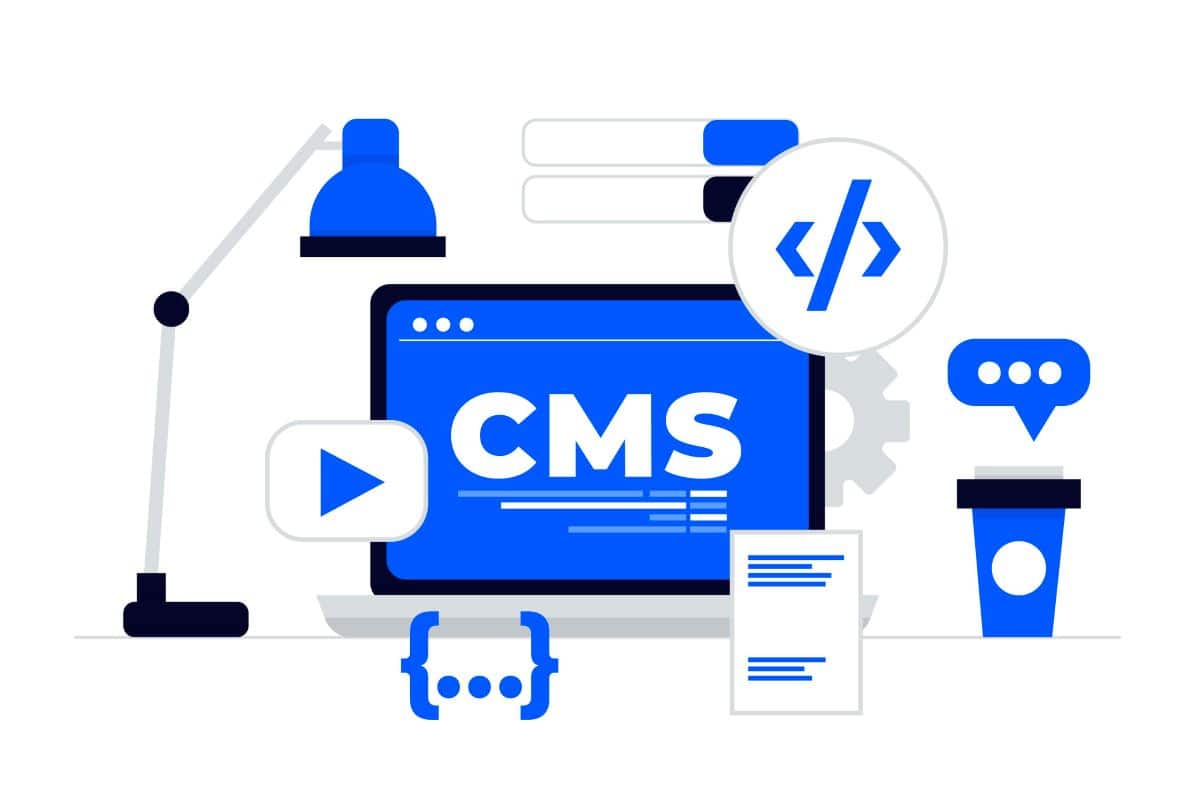Content Management Systems (CMS) are the heart of most modern websites. They facilitate the creation and management of digital content, revolutionizing our interaction with the web.
Definition of CMS
A CMS, or Content Management System, is a platform that allows users to create, manage, and modify content on a website without the need for programming knowledge. Think of a CMS like the backstage of a theater, where all the content is organized and multimedia elements are coordinated before the curtain rises. Modern CMSs offer intuitive interfaces that allow centralized management of text, images, and videos, separating content from visual presentation. This feature enables quick changes without altering the site’s structure.
Advantages of using a CMS
Adopting a CMS for the creation and maintenance of websites brings several benefits:
- Ease of use: Designed for non-technical users, CMSs enable multidisciplinary teams to collaborate on web projects.
- Efficient content management: Editors can publish, edit, or delete content without dealing with HTML or CSS code.
- Customization and scalability: Most CMSs offer themes and plugins that allow customization of the site’s appearance and functionality. As the site grows, the CMS can scale to handle more content.
- Improved SEO: Many CMSs include optimization features for search engines, facilitating the implementation of good SEO practices.
- Security and maintenance: Popular CMSs have active communities that work on security improvements and updates.
Popular CMSs
Some of the most notable CMSs are:
- WordPress: Originally a blogging platform, WordPress has become the most widely used CMS, ideal for websites of all sizes.
- Joomla: Known for its robustness, it is popular for corporate sites and online applications.
- Drupal: Favored by developers who require a high degree of customization and structured content management.
Additionally, there are CMSs specific to e-commerce, such as Magento and PrestaShop, and for education, such as Moodle. Knowing the diversity and capabilities of different CMSs is crucial for choosing the right platform for a web project.
Tools to detect the CMS of a website
In web development, discovering the technologies behind a successful site is valuable. There are various tools to identify the CMS and other associated technologies:
- BuiltWith: Provides a comprehensive analysis of a website’s technologies, including the CMS used, frameworks, and plugins.
- Wappalyzer: This browser extension detects CMS and plugins in real time, providing immediate information.
- WhatCMS.org: Specialized in CMS detection, it offers accurate results about the system used on a site.
- W3Techs: Provides global statistics on the use of different CMSs and web technologies, helping to understand market trends.
These tools offer a comprehensive view of the technological ecosystem of any website, which can inform strategic decisions in web development and design.
How to identify the template or theme of a website
Once the CMS is identified, the next step is to discover what template or theme is being used, which is valuable for designers and developers seeking inspiration. For WordPress, there are several tools that facilitate this detection:
- WPThemeDetector: Provides detailed information about the theme in use, including name, author, and list of plugins.
- IsItWP: Detects if a site uses WordPress and provides details about the theme and plugins.
Although these tools may not be 100% accurate, they are an excellent starting point for design analysis.
Source code analysis to find clues about the template
For those with technical knowledge, analyzing a page’s source code can reveal information about the template used. The steps include:
- Inspecting the HTML code: Look for comments or metadata that mention the theme name.
- Examining CSS files: The names of stylesheets may contain clues about the theme.
- Searching file paths: Paths to images or scripts sometimes include the theme name.
This method allows developers and designers to better understand the design and structure of the sites they admire.
Content Management Systems are vital tools that have transformed the creation and management of online content. Understanding how they work and how to identify which CMS and templates websites use can be a significant advantage in web development and design. Current tools allow us to discover and learn about the technology that powers the sites we browse, inspiring and enriching our work in the digital realm.
Frequently asked questions about CMS
What is the difference between a CMS and a website builder?
A CMS focuses on content management and allows customization through themes and plugins, while website builders typically offer simpler interfaces and less technical flexibility.
Is it safe to use a CMS?
CMSs can be secure if kept updated and proper security practices are implemented, such as using strong passwords and security plugins.
Can I switch CMS after creating my site?
Yes, but it can be a complex process. It requires planning to migrate content and ensure that the new CMS meets all your needs.
